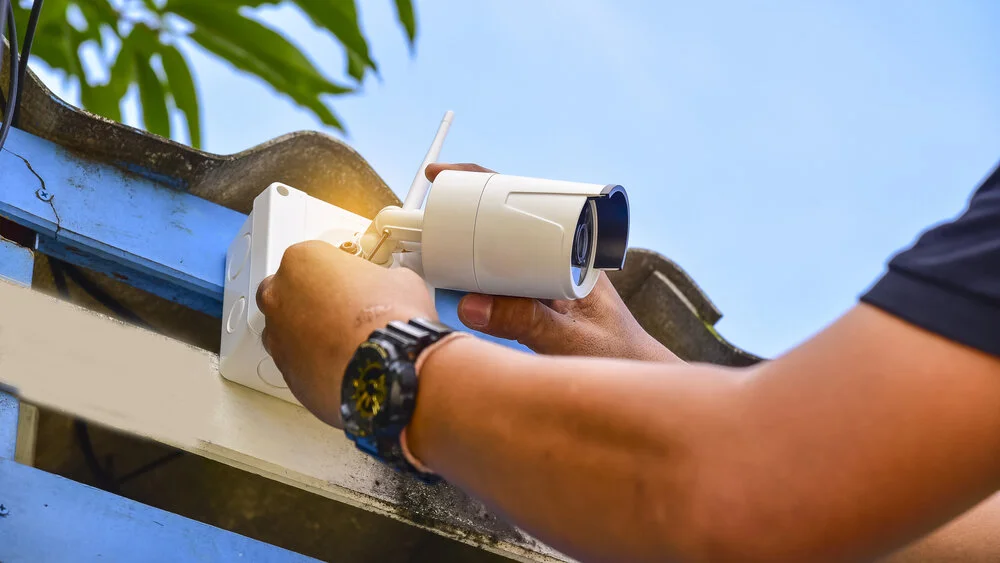Wired vs wireless security camera (what should you choose)?
There’s no question that security cameras are powerful tools for protecting your home or workplace.
They often deter intruders, or catch them in the act for evidence later on.
In fact, we already know that burglars are less likely to break into a property when they spot real security cameras (fake versions rarely fool seasoned criminals).
However, with so many different types of surveillance cameras, it can be overwhelming to decide what option is best for your property.
But it’s crucial to get this right.
There’s no point in having a surveillance system that doesn’t function properly – due to property logistics (plus it’s a waste of money).
This article compares wireless vs wired security cameras.
At a glance, wired cameras work well for properties in metro areas – where access to electricity isn’t a problem. On the other hand, wireless cameras are usually better for large properties in hard-to-reach areas (especially those in rural areas that don’t have easy access to the power grid).
Wired surveillance cameras:
This traditional surveillance system requires cables to connect to electricity and the internet. The camera, recorder and router are all linked via a separate power cord or a single POE cable.
Footage is stored on a built-in device, which can be accessed later (many wired systems can also be connected to the internet, which means you can view live footage off the cloud).
Advantages: This is a reliable option for small to large properties that have easy access to power outlets, as 4 to 16 cameras can be linked together. It’s not weakened by interference coming from wireless signals, as the system relies on physical connections.
On the downside: a wired system is vulnerable to power outages. You’re also restricted on where you place the cameras, as you need to run cables that are attached to a nearby electricity outlet.
Wireless surveillance cameras:
A wireless security camera system transmits surveillance footage wirelessly from the camera to the recorder, by using WiFi combined with battery power or electricity from an outlet.
Advantages: Battery-powered wireless cameras don’t require cables or wires to run – which makes them a better option for large properties that don’t have easy access to electricity outlets.
This system is easy to install and transportable, so you can take it with you if you relocate.
On the downside: if using battery power, you need to regularly recharge the batteries to keep the system running. WiFi security cameras also need a strong internet signal.
But there’s an easy solution – an advanced version of wireless surveillance….
Solar security cameras (wireless):
This CCTV system relies mostly on energy from the sun. Solar panels convert sunlight into an electrical current that powers the camera and rechargeable batteries (you don’t need to recharge the batteries, this happens naturally).
Footage is recorded 24/7 (even at night, or on cloudy days) and stored in a central monitoring system.
No cables are required, and you don’t need to connect to power outlets. Wireless solar security cameras connect to the WiFi (to view live footage) but don’t require an internet signal to function.
Brilliantly, the camera will record and store footage – even without a WiFi signal. In these cases, footage is stored on the SD card (you just won’t be able to watch a live stream).
Land Watch Australia specialise in wireless solar security cameras:
Our long range solar wireless surveillance systems are perfect for rural properties, construction sites and event venues.
Key features:
Panel and camera system included
24/7 video surveillance
Fixed, pan, tilt and zoom digital cameras available
Live 360° HD footage from any device (only one bar of service is needed on homestead internet or 3G mobile coverage)
Automatic data storage
Infrared clear night visions up to 100m
Waterproof equipment with damage protection for longevity
Three-year warranty and a lifetime of support
Please call 1800 308 270 or fill out this form to get in touch with us.

